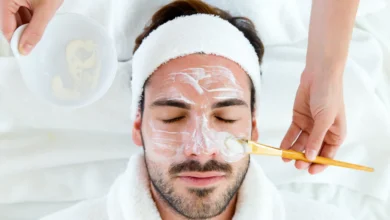
Atopic dermatitis, or eczema, is one of many types of chronic skin conditions that cause itchy, inflamed skin. Eczema can strike at any age, but it is most often found in children, and can continue into adulthood. Learning what eczema is and how to manage it means knowing the symptoms, its triggers, and the different types of treatment available to help keep flare ups under control.
Symptoms of Eczema
Symptoms of eczema can differ from person to person and depending on how severe a condition is. Common symptoms include:
- Itchy skin: The most common symptoms include intense itching that may be worse at night.
- Dry, scaly patches: These areas may become dry and thickened, notably the elbows, knees, hands, and the face.
- Red or inflamed skin: As with all topical products, inflammation can make the skin look redder or darker, depending on skin tone.
- Blisters or oozing: In severe cases, eczema can lead to tiny blisters that burst and fill with clear fluid that might weep or crust over.
- Cracked skin: Painful cracking can occur, especially in sensitive areas, from dryness and from inflammation. Refer to a dermatologist in Islamabad for medical assistance for cracked skin.
- Thickened skin: The skin will become thick and leathery long term from repeated scratching.
Triggers of Eczema
Triggering factors for eczema flare ups include environmental as well as internal factors. Once you know these triggers, you must avoid them to be successful in improving your condition. Common triggers are given below:
Environmental Triggers
- Weather changes: Flare ups can be caused by cold, dry air or heat and humidity.
- Irritants: Sensitive skin may be irritated by harsh soaps and detergents, fragrances, and some fabrics (wool).
- Allergens: However, dust mites, pet dander, pollen, and mold can all make eczema symptoms worse.
- Water exposure: On its own, you spend too much time in long, hot showers, or tend to overdo hand washing, which can dry out the skin, causing irritation.
Internal Triggers
- Stress: Stress, both emotional and physical, can cause or aggravate eczema symptoms, because high stress can lead to a weaker immune system.
- Hormonal changes: Hormonal fluctuations, particularly in pregnancy or whilst you are on your period, can cause flare ups.
- Food allergies: For some people, specific foods, such as dairy, eggs, or nuts, can actually trigger their eczema.
Treatment Options for Eczema
There is no cure for eczema, but therapies seek to control symptoms, reduce swelling and prevent flare ups. Treatment options are:
Topical Treatments
- Moisturizers: Fragrance free, thick moisturizers applied regularly will lock in moisture and create a protective barrier on the skin.
- Corticosteroid creams: Steroid creams that are available by prescription or over the counter reduce inflammation and alleviate itching. Care must be taken to monitor use to avoid thinning of the skin.
- Topical calcineurin inhibitors: Creams containing non steroidal agents including tacrolimus and pimecrolimus might reduce immune response and inflammation.
- Antibiotic creams: In the case of eczema with bacterial infection, a course of antibiotics may be needed to get the bacterial infection cleared.
Medications
- Oral antihistamines: These can help reduce itching and stop the itching (at least which can be done at night).
- Oral corticosteroids: Oral steroids to reduce inflammation may be prescribed in more severe cases, to be used short term.
- Immunosuppressants: If moderate or severe eczema, your doctor may prescribe drugs, such as cyclosporine or methotrexate, to suppress the immune system and prevent flare ups.
- Biologics: For people with moderate to severe eczema, a biologic medication, dupilumab, works by blocking specific immune pathways.
Light Therapy (Phototherapy)
- UVB phototherapy: In moderate to severe cases, it may be helpful to ‘top up’ with controlled exposure to ultraviolet B (UVB) light, because this can reduce the inflammation and itching of eczema in some individuals.
Lifestyle and Home Remedies
In addition to medical treatments, certain lifestyle changes can help manage eczema and minimize flare-ups:
- Moisturize regularly: Moisturizing immediately after bathing can be of great help in keeping skin hydrated, and reduce dryness.
- Avoid known triggers: Flare ups can be prevented by identifying and avoiding triggers that include rough soaps, certain fabrics and allergens.
- Bathe with care: Short, lukewarm baths or showers are better than long, hot ones, and you should use mild, fragrance free cleansers.
- Use a humidifier: Indoor air can also be kept moist to keep the skin from drying out, a problem more common in colder months.
- Wear soft fabrics: Select loose garments fabricated of cotton, or other soft fiber, to preemptively decrease skin soreness.
- Manage stress: Reducing stress can prevent flare ups by practicing things like taking a yoga class, meditating or learning breathing exercises.
Conclusion
There’s no cure for eczema, but you can manage it with treatment and lifestyle changes. The condition can be painful and difficult, but we recommend you to work with the best dermatologists to create a tailored treatment plan that will reduce symptoms and increase quality of life. People with eczema reduce flare ups and keep skin healthy by taking proactive steps.




